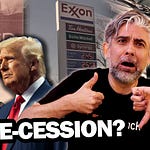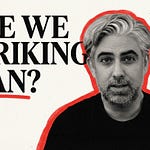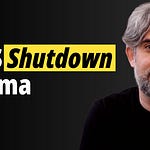Trump signed an executive order last week that could fundamentally reframe the way the federal government deals with homelessness. Titled “Ending Crime and Disorder on America’s Streets,” the order pivots away from housing-first strategies and toward public safety and mandatory treatment. That includes prioritizing funding for states and cities that ban urban camping, loitering, and open drug use, and it supports civil commitment — involuntary hospitalization for those with severe mental illness or addiction. Harm reduction programs are effectively defunded under this order, and treatment becomes a prerequisite for federal help.
This didn’t get a lot of attention in the media. That’s a mistake. Homelessness is one of the most visible problems in American cities, and it’s not going away. I’ve lived in Oakland, San Francisco, and Austin — three cities that have all struggled mightily with this issue. San Francisco in particular is the worst I’ve seen. It’s not hyperbole to say that its homelessness crisis overshadows the city’s stunning architecture and rich culture. Visitors walk away talking about tents, not the Golden Gate Bridge.
This isn’t a lecture about policy. I don’t think there’s an easy solution. From everything I’ve read and seen, roughly half of people living on the streets are there because of financial collapse — bad luck, bad decisions, and no safety net. The other half, though, don’t want to reenter society. Some of them are dangerous, many are mentally ill, and addiction is everywhere. That’s especially true in places like the Bay Area, where cheap or even free drugs are plentiful, and the spiral from one substance to the next ends in death more often than we acknowledge.
Even in liberal cities, the political lines are shifting. When I moved to Austin in 2021, the city had rescinded its ban on urban camping. The results were immediate: tents on sidewalks, more street homelessness, and public parks taken over. A citywide referendum eventually reinstated the ban — not because Austin became more conservative, but because people across the political spectrum wanted cleaner streets. They didn’t necessarily care how it happened. That’s the political space Trump’s executive order moves into.
It’s controversial, yes. And there are real concerns about forcing treatment and stripping funding from programs that do help some people. But the public mood is changing. People are frustrated. They want their cities back, and they’re running out of patience for ideological purity tests. Trump, love him or hate him, is filling a leadership vacuum here. I don’t know if his order will work — or if it’ll be implemented at all in places that oppose him. But I do think it’s a sign that this issue is far from settled, and it’s about to get a lot more attention.
Chapters
00:00:00 - Intro
00:03:09 - Trump’s Homelessness Plan
00:14:56 - Update
00:15:18 - EPA Rollbacks
00:20:09 - North Carolina
00:23:12 - Epstein
00:26:58 - Interview with Dan Turrentine
00:59:56 - Wrap-up










